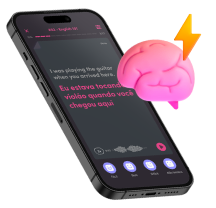Fluency News: New technology to predict heart disease
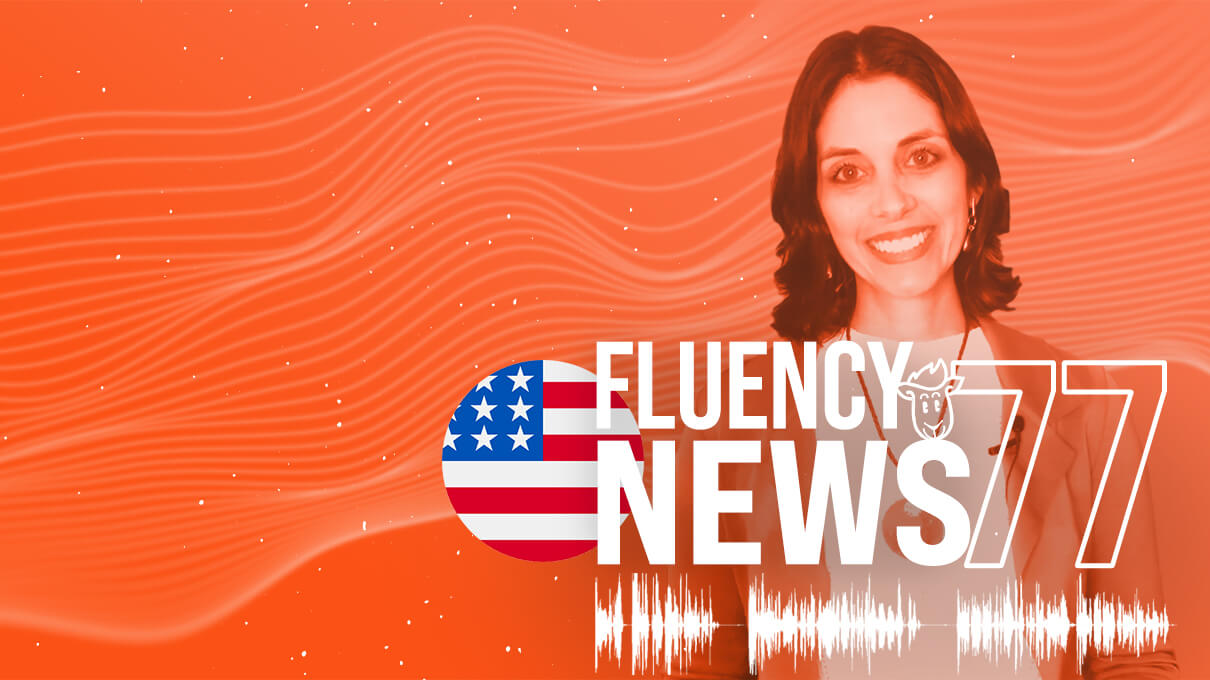
Sejam bem-vindos e bem-vindas a mais um episódio da nossa série de podcasts, o Fluency News!
Navegue pelo conteúdo
Hello, everyone!
Sejam bem-vindos e bem-vindas a mais um episódio da nossa série de podcasts, o Fluency News! Aqui você vai treinar a sua escuta e ficar por dentro do que está acontecendo no mundo, sempre com as principais notícias da semana, tudo em inglês! Ao longo do episódio, nós também adicionamos explicações em português das coisas que achamos que precisam de mais atenção, assim você não perde nenhum detalhe!
No episódio desta semana, nós falamos sobre a nomeação da primeira mulher negra para a Suprema Corte dos Estados Unidos. Também temos um rápido update sobre a situação da guerra na Ucrânia, e vemos descobertas incríveis no campo da ciência.
Temos uma página de dicas de inglês no Instagram, vá conferir! @fluencytvingles
Toda semana, temos um novo episódio do Fluency News, não deixe de escutar! See you!
Transcrição do episódio
Hello, squad! Welcome to another episode of Fluency News! I’m Thalita Uba, one of your English teachers here at Fluency Academy.
I’m super excited you decided to join me today! This podcast series is a great way for you to train your comprehension skills while remaining an informed citizen of the world, and it’s wonderful you’re taking steps to improve your skills!
Let’s just jump into it and get started, shall we? We’re going to cover some of the most relevant stories of the week, and we might pop in some Portuguese from time to time to clarify or explain some things that might deserve a little more attention.
As always, you can find the transcript of this episode and all of our sources in the description, or by going to our content portal, fluency.io.
We start today’s episode with some very positive news coming from the U.S.! Ketanji Brown Jackson was confirmed to the Supreme Court, making history as the first Black female justice in the country.
The Senate voted to confirm Judge Ketanji Brown Jackson to the Supreme Court last Thursday, cementing her place as the first Black woman to serve on the nation’s highest court.
Jackson’s confirmation as the 116th justice in U.S. history received bipartisan backing, with a final vote of 53 to 47 in the upper chamber. Three Republicans, Sens. Susan Collins of Maine, Lisa Murkowski of Alaska and Mitt Romney of Utah, joined all 50 Democrats in supporting President Biden’s nominee. Vice President Kamala Harris, the first woman and first woman of color to hold the role, presided over the Senate during the vote.
“On this vote, the yays are 53. The nays are 47 and this nomination is confirmed,” Harris said to rousing applause from senators.
Jackson’s appointment to the high court is likely to be a significant component of Mr. Biden’s legacy, and marked his first opportunity to make his imprint on the Supreme Court. But Jackson will not take the bench immediately, as Justice Stephen Breyer, whose seat she will fill, is poised to retire at the end of the Supreme Court’s term this summer.
“This is a wonderful day, a joyous day, an inspiring day for the Senate, for the Supreme Court and for the United States of America,” Senate Majority Leader Chuck Schumer said before the vote. “Today is one of the brightest lights, and let us hope it’s a metaphor, an indication of many more bright lights to come.”
A palavra appointment, como muitas, tem mais de um significado. Ela pode significar “compromisso”, “consulta”, ou “encontro”. Mas se você prestar atenção, essas traduções não fazem sentido nessa notícia. Assim como no português, palavras podem ter múltiplos significados, e é sempre necessário avaliar o contexto em que a palavra está inserida, ao invés de tentar traduzir individualmente. Aqui, por exemplo, appointment significa nomeação. Esse significado é mais usado em um contexto político, enquanto a tradução “compromisso” é mais comum no dia a dia.
Sadly, the situation in Ukraine has not resolved itself, and it seems to be escalating. Ukrainian president Volodymyr Zelenskiy has voiced concerns that Russian forces are preparing “a new stage of terror” that could involve the use of chemical weapons in Ukraine.
Vadym Boychenko, Mariupol’s mayor, told the Associated Press on Monday that more than 10,000 civilians had died in his city, and that the toll could surpass 20,000.
Boychenko also accused Russian forces of having blocked humanitarian convoys into the city for weeks in an attempt to conceal the carnage there from the outside world.
A Russia-allied separatist official, Eduard Basurin, appeared to the use of chemical weapons on Monday, telling Russian state TV that Russian-backed forces should seize a giant metals plant in Mariupol by first blocking all the exits out of the factory. “And then we’ll use chemical troops to smoke them out of there,” he said.
Ukrainian lawmaker Ivanna Klympush said Russia had used an “unknown substance” in Mariupol and that people were suffering from respiratory failure, but did not know if chemical weapons had been used.
Quando estamos falando de situações que ainda não foram resolvidas, é comum usarmos o verbo modal could. Esse modal tem basicamente três funções: falar de habilidades passadas, fazer pedidos educados, e o que é relevante aqui, falar de possibilidades futuras. Could pode ser traduzido para “poderia”, “pode”. Como estamos falando de coisas incertas, previsões, não é possível falar com certeza, definitivamente. Nesses casos, o modal faz mais sentido, por ter esse tom de incerteza, de impresivisibilidade.
Scientists are claiming to have found fossils of dinosaurs that were killed and entombed on the actual day a giant asteroid struck Earth, some 66 million years ago.
The find comes from the Tanis fossil site in the US State of North Dakota.
Very few dinosaur remains have been found in the rocks that record even the final few thousand years before the impact.
The BBC has spent three years filming at Tanis for a show to be broadcast on 15 April, narrated by Sir David Attenborough.
A stunningly preserved leg, complete with skin, of a dinosaur was presented. Along with the limb, there are fish that breathed in impact debris as it rained down from the sky.
Also presented were a fossil turtle that was skewered by a wooden stake; the remains of small mammals and the burrows they made; skin from a horned triceratops; the embryo of a flying pterosaur inside its egg; and what appears to be a fragment from the asteroid impactor itself.
“We’ve got so many details with this site that tell us what happened moment by moment, it’s almost like watching it play out in the movies. You look at the rock column, you look at the fossils there, and it brings you back to that day,” says Robert DePalma, the University of Manchester, UK, graduate student who leads the Tanis dig.
A palavra present é interessante, porque ao mesmo tempo é e não é um falso cognato! Quando estamos falando do tempo verbal, é um cognato. Quando estamos falando de coisas que damos a outra pessoa, como presentes, é um cognato. Mas aqui, nessa notícia, presented não é um cognato, porque significa “apresentar”, ou “mostrar”. De novo, o important é estar atento ao contexto, para entender o sentido de cada frase!
And, to finish this episode in an upbeat note, new technology capable of predicting cardiac arrests and strokes are becoming available in the US. Scientists have developed a blood test that can predict whether someone is at high risk of a heart attack, stroke, heart failure or dying from one of these conditions within the next four years.
The test, which relies on measurements of proteins in the blood, has roughly twice the accuracy of existing risk scores. It could enable doctors to determine whether patients’ existing medications are working or whether they need additional drugs to reduce their risk.
It could also be used to hasten the development of new cardiovascular drugs by providing a faster means of assessing whether drug candidates are working during clinical trials.
The test is already being used in four healthcare systems within the US and the lead researcher, Dr Stephen Williams, hopes it could be introduced to the UK in the near future.
Importantly, the test can also accurately assess risk in people who have previously had a heart attack or stroke, or have additional illnesses, and are taking drugs to reduce their risk, which is where existing risk prediction scores tend to fall down.
A new artificial intelligence-based approach can predict if and when a patient could die of cardiac arrest. The technology, built on raw images of patient’s diseased hearts and patient backgrounds, significantly improves on doctor’s predictions and stands to revolutionize clinical decision-making and increase survival from sudden and lethal cardiac arrhythmias, one of medicine’s deadliest and most puzzling conditions.
The work, led by Johns Hopkins University researchers, was detailed in Nature Cardiovascular Research.
The team is the first to use neural networks to build a personalized survival assessment for each patient with heart disease. These risk measures provide with high accuracy the chance for a sudden cardiac death over 10 years, and when it’s most likely to happen.
The deep learning technology is called Survival Study of Cardiac Arrhythmia Risk, or SSCAR. The name alludes to cardiac scarring caused by heart disease that often results in lethal arrhythmias, and the key to the algorithm’s predictions.
The team trained a second neural network to learn from 10 years of standard clinical patient data, 22 factors such as patients’ age, weight, race, and prescription drug use.
The algorithms’ predictions were not only significantly more accurate on every measure than doctors, they were validated in tests with an independent patient cohort from 60 health centers across the United States, with different cardiac histories and different imaging data, suggesting the platform could be adopted anywhere.
A estrutura more than é a base para falar de comparativos no inglês. More significa “mais”, e than é uma conjunção, que pode ser traduzida para “do que”. Essa estrutura é normalmente separada por um adjetivo, mas como você pode ter notado nessa notícia, é possível incluir complementos entre as palavras. Usamos essa base quando estamos comparando com adjetivos mais longos, como “accurate”. Se o adjetivo for curto, adicionamos o sufixo -ER ao final. “Big”, por exemplo, vira “bigger”. Uma das coisas que pode causar confusão, e que deixa até nativos confusos, é saber quando um adjetivo é curto ou não. Essa definição não é feita pelo número de letras, e sim pelo som da palavra. “Young” e “tired”, por exemplo, tem o mesmo número de letras, mas “young” é considerado um adjetivo curto, enquanto “tired” é considerado um adjetivo longo. Você vai descobrir e se familiarizar com essas peculiaridades com o contato com o idioma, então não se estresse muito com isso! E lembre que nativos também se confundem, então seja paciente e gentil consigo mesmo!
And this is where we’re going to end today’s episode. Thank you for taking the time to listen in today! I hope you’re doing well, having a great week so far!
E se você quer melhorar o seu nível de inglês, espanhol, francês, italiano, alemão, japonês, mandarim ou coreano, estudando com os nossos super professores, você pode se inscrever na nossa lista de espera.
Assim você vai ter uma chance ainda melhor de conseguir uma vaga quando a gente abrir uma nova turma! É só se inscrever clicando no link na descrição desse episódio, leva uns 15 segundinhos!
E é claro, se você conhecer mais alguém que quer aprender um novo idioma, mande o link pra eles também.
You can see the transcript of this episode and all of our sources by going to fluency.io. Don’t forget to check it out! There’s a new episode of Fluency News every week, and we’ll be waiting for you. Bye!
Stories:
Ketanji Brown Jackson confirmed to Supreme Court, making history as first Black female justice
https://www.cbsnews.com/news/ketanji-brown-jackson-supreme-court-senate-confirmation-first-black-woman/
Ukraine president warns of ‘new stage of terror’ as west probes chemical weapons claims
https://www.theguardian.com/world/2022/apr/12/ukraine-president-warns-of-new-stage-of-terror-as-west-probes-chemical-weapons-claims
https://www.theguardian.com/world/live/2022/apr/12/russia-ukraine-war-latest-mariupol-mayor-says-more-than-10000-civilians-killed-zelenskiy-taking-chemical-weapons-threat-seriously
https://www.theguardian.com/world/series/ukraine-live
https://www.bbc.com/news/live/world-europe-61075759
Tanis: Fossil of dinosaur killed in asteroid strike found, scientists claim
https://www.bbc.com/news/science-environment-61013740
https://www.businessinsider.in/science/news/scientists-claim-theyve-found-a-perfectly-preserved-dinosaur-fossil-killed-when-the-mass-extinction-asteroid-hit-the-earth-66-million-years-ago/articleshow/90760067.cms
New technology able to predict cardiac arrests
https://www.theguardian.com/society/2022/apr/06/blood-test-predict-heart-attack-stroke-double-previous-accuracy
https://hub.jhu.edu/2022/04/07/trayanova-artificial-intelligence-cardiac-arrhythmia/
Fluency Inglês
Playlist

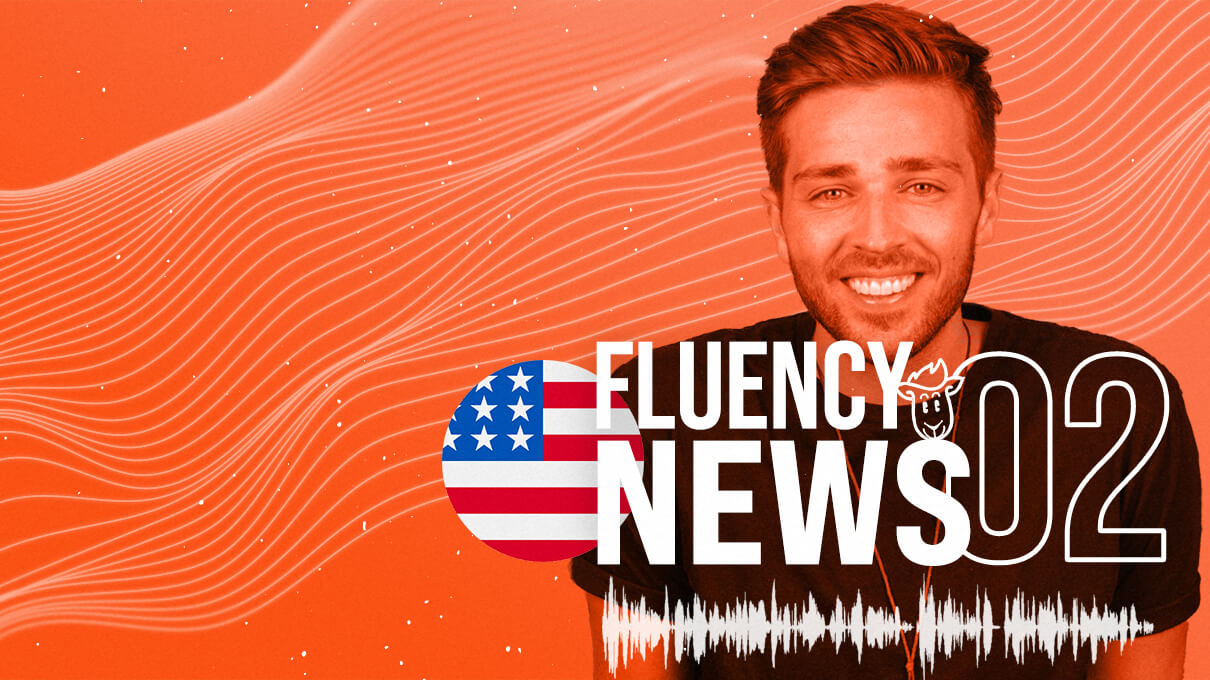





































































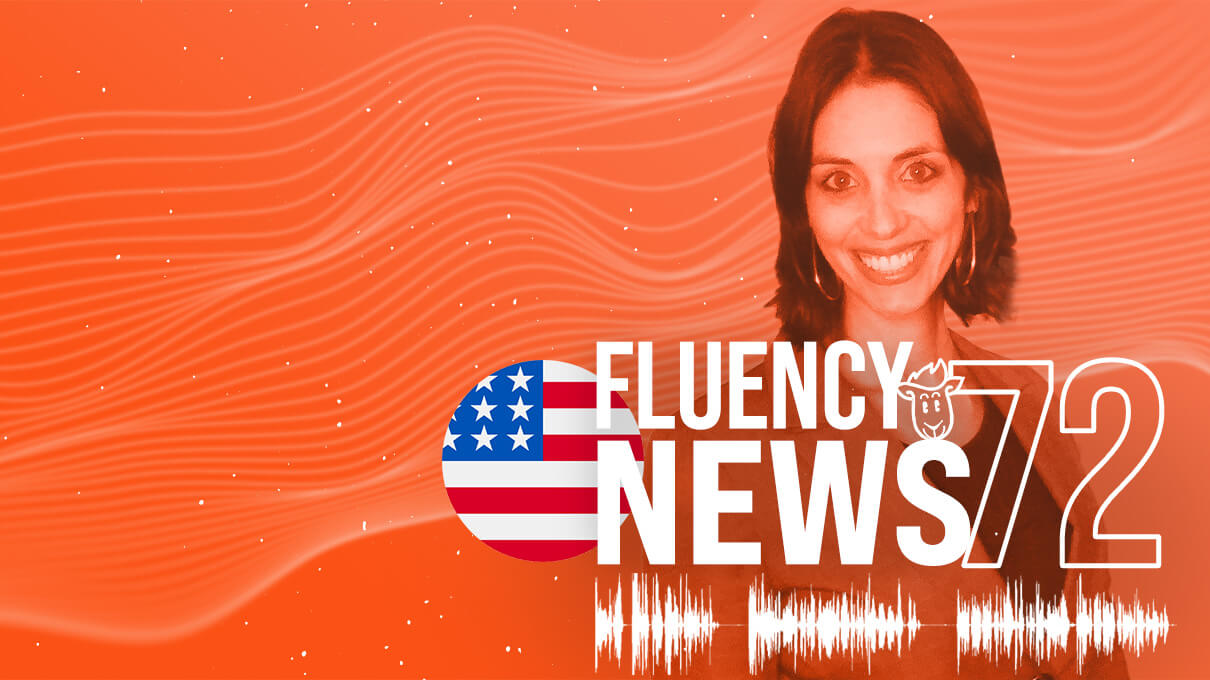



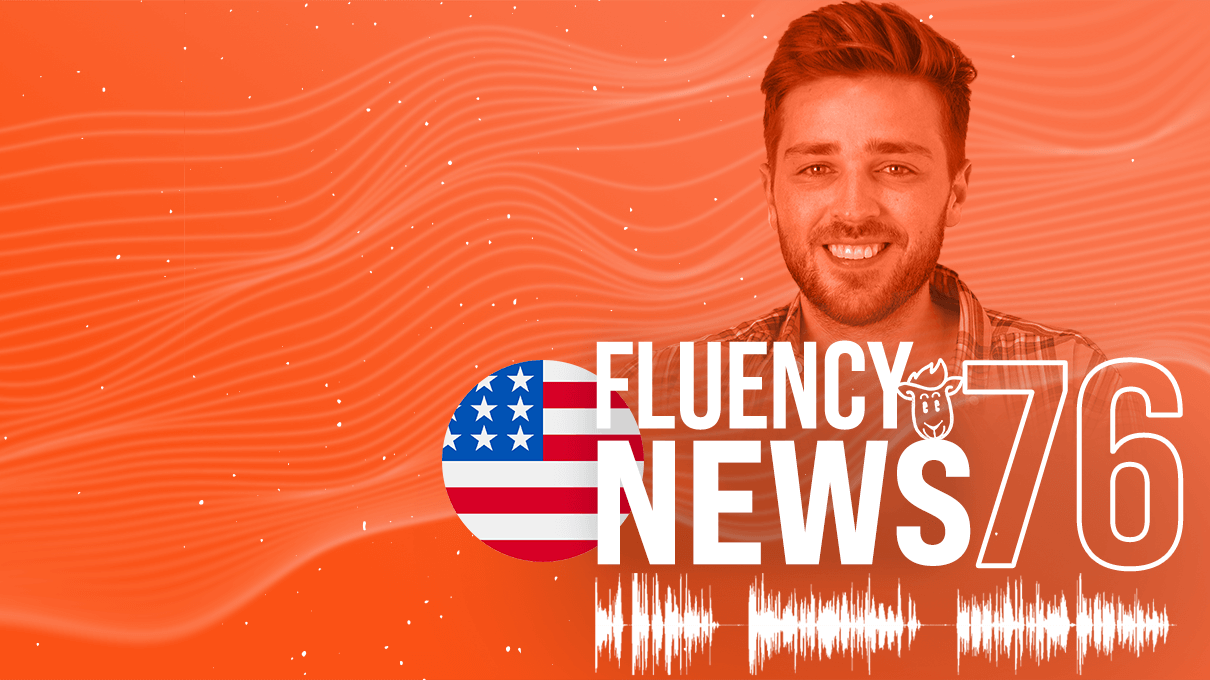



























 Curso de Inglês
Curso de Inglês
 Curso de Espanhol
Curso de Espanhol
 Curso de Francês
Curso de Francês
 Curso de Mandarim
Curso de Mandarim
 Curso de Italiano
Curso de Italiano
 Curso de Japonês
Curso de Japonês
 Curso de Alemão
Curso de Alemão
 Curso de Coreano
Curso de Coreano







 Blog
Blog  Podcast
Podcast  Lives
Lives  Aulas
Aulas  eBooks
eBooks  Minicursos
Minicursos





